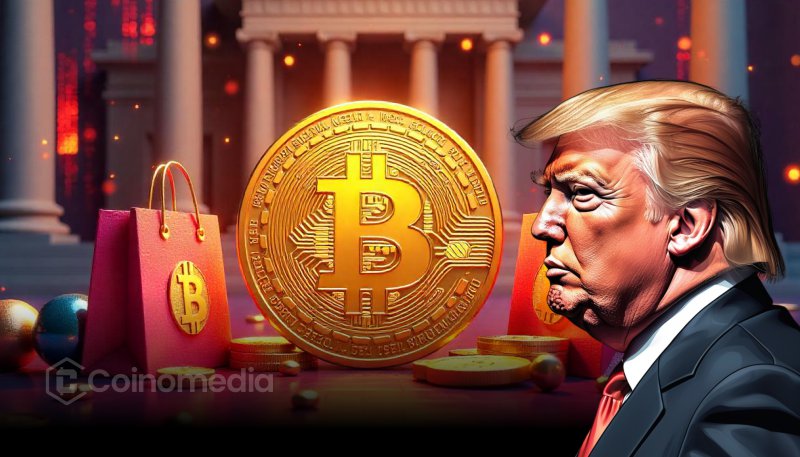Trump Admin Considers Buying Bitcoin With Tariff Revenue
The Trump team reveals plans to potentially buy Bitcoin using U.S. tariff revenue—shaking up the crypto and economic debate.

- Trump officials suggest Bitcoin purchases using tariff funds
- Move could boost BTC legitimacy as a national asset
- A bold shift in U.S. financial and crypto strategy
A Bold Bitcoin Strategy From Trump’s Team
In a striking new development, the Trump administration has floated the idea of using tariff revenue to purchase Bitcoin. The announcement marks a major shift in how digital assets might be integrated into the U.S. financial strategy—especially from a government once critical of crypto.
According to early reports, Trump’s team sees the potential of Bitcoin as a reserve asset and may leverage revenue generated from tariffs to begin accumulating it. This would be the first time in U.S. history that a presidential administration has considered directly investing in Bitcoin.
Bitcoin as a National Asset?
The suggestion to buy Bitcoin using government funds, particularly from tariffs, is significant. Tariff revenue is typically used to support domestic industries or rebalance trade imbalances. Redirecting it toward crypto assets would not only validate Bitcoin’s legitimacy but also signal a shift in how the U.S. positions itself in the global digital economy.
This approach could align the U.S. with countries like El Salvador, which made headlines by adopting Bitcoin as legal tender and adding it to their national reserves.
If implemented, this move could potentially trigger increased global interest in sovereign Bitcoin accumulation, pushing prices higher and reshaping the crypto market narrative.
What’s Behind the Move?
Analysts suggest the Trump team may view Bitcoin as a hedge against inflation, dollar weakness, or financial system instability. With growing concerns about central bank policies and mounting debt, Bitcoin’s fixed supply and decentralized nature are becoming more attractive to certain policymakers.
However, such a move would likely face regulatory and political hurdles. Critics argue that using tariff money to buy volatile assets like Bitcoin could be risky, while supporters see it as forward-thinking and financially strategic.
Whether this plan advances or not, the announcement alone shows how far Bitcoin has come—from a fringe idea to a potential pillar of national financial policy.



